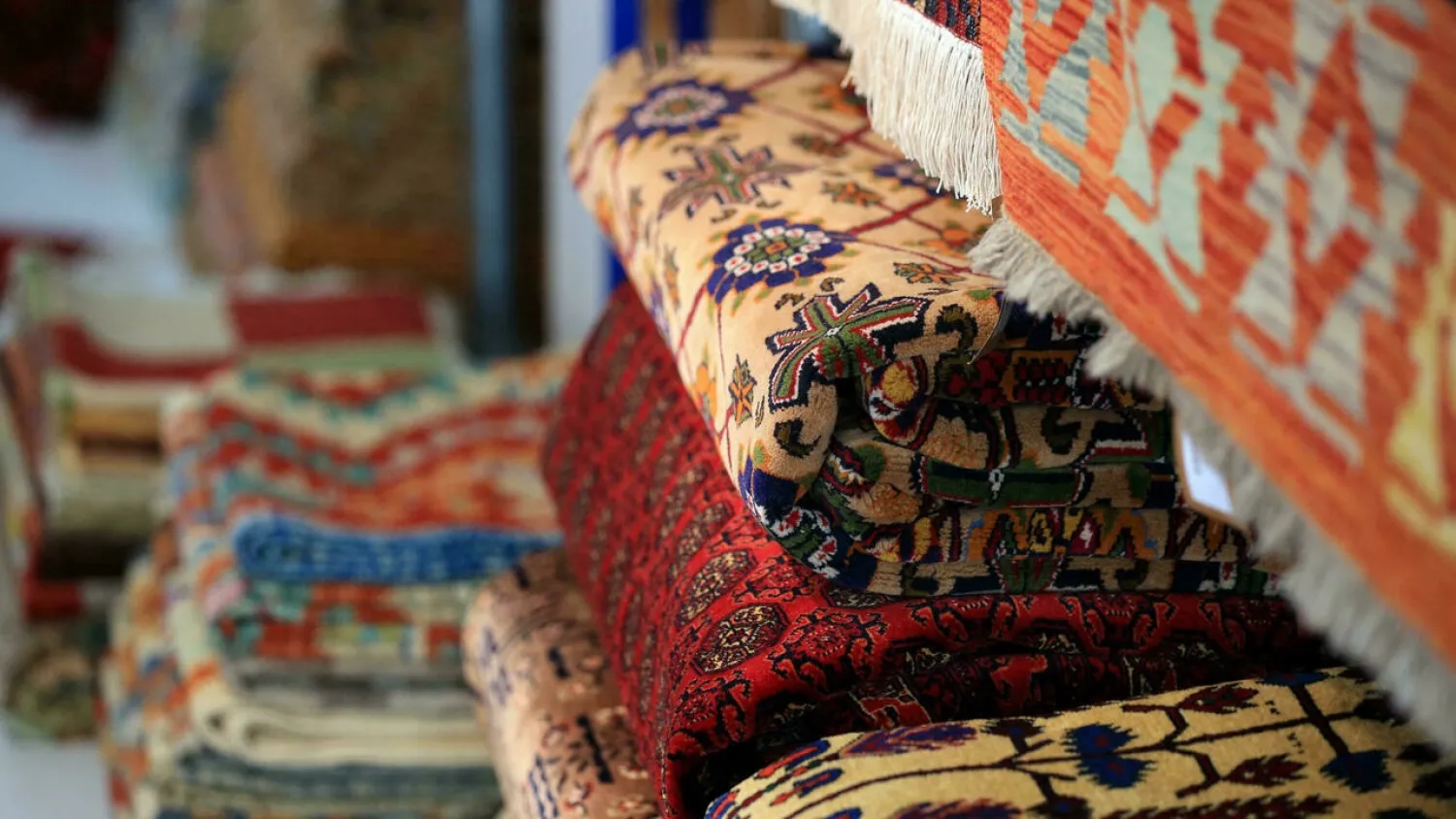Overseas businesses selling colorful handwoven rugs and vivid handblown glass from Afghanistan are concerned for their suppliers as the Taliban's takeover of the country threatens those with links to the West.
British businessman James Wilthew has built up close ties with Afghan rug weavers and sellers, buying the sought-after carpets directly from the northern provinces, where the industry is traditionally based.
The ex-serviceman sells the carpets at his shop in Hebden Bridge in Yorkshire in northern England and estimates that his company, The Afghan Rug Shop, supports about 200 families.
A share of the proceeds goes to Afghanaid, a British charity supporting people in Afghanistan.
He said he was frustrated by the British government's response, despite an emotive emergency debate on the crisis in parliament and urgent calls for help.
"Nothing happens, there's been no action," he said, warning: "Government bureaucracy will result in the death of thousands of people."
The former RAF officer worked in Afghanistan in 2004 on the UK Provincial Reconstruction Team, set up to help development projects.
Asked if hardliners could target those who worked with him due to his UK military background, he said: "Yes, of course".
The Taliban could say, "You've been working for Mr. James", he said. "It's just the association."
"I'm not necessarily sure how far the Taliban will go with these things: we just don't know what the spectrum of danger is."
Major export commodity
Afghan rugs are a major commodity and the country's second largest non-agricultural export, according to the World Trade Organization.
Textiles are by far the most significant Afghan import to the UK, worth some £2.4 million ($3.3 million) per year, government figures show.
The ancient carpet trade existed under the previous Taliban regime, which ruled Afghanistan with an iron fist from 1996 until they were ousted in the US-led invasion in 2001.
The uncertainty and chaos since the return of the hardline extremists was "a temporary issue", said Wilthew.
"Under the Taliban regime, that trade (in textiles) will continue, they need the tax from that business, the employment," he added.
"It's their export commodity, it's how they make an income."
Most Afghan carpets are exported via neighboring Pakistan, but Wilthew is unusual in dealing directly with artisans and traders inside the country.
That could force him to change his business model, possibly using a middleman in Pakistan, and switching from US dollars if the greenback is banned in Afghanistan.
He is also unlikely to be able to continue using international shipping and delivery companies DHL and FedEx for delivery, he added.
"Acquiring rugs from Afghanistan is not a concern for me. It's not an issue, the issue is my friends," he said.
'Impossible' logistics
Another high-end company that sells goods made by Afghan artisans is London-based Ishkar, which sells contemporary-design carpets, as well handblown tumblers, jewelry and clothes.
The brand's creative director, Electra Simon, said the company was in daily contact with people in Afghanistan, and "pretty much everybody is trying to leave".
"They just basically want to get out, they can't leave their houses right now," she said, adding they felt "sheer desperation" at the situation.
"It's really hard: the relationships we've built up with people, seeing them in these massively tricky situations," she said.
Ishkar's online shop is selling photographic prints of Afghanistan to raise funds for Emergency, which provides medical treatment to conflict victims.
The company, which works with some 30 people in the country, has removed references to Afghan partners from its website to protect them.
"We want to do everything possible to continue working with people in Afghanistan, if it doesn't put them at risk," she said
"Some of them will be (at risk), others probably not as much because they are just traditional artisans working, so hopefully we can continue working with them."
Some artisans in areas captured by the Taliban have been able to keep working, she said, although the logistics of exporting to Britain were at the moment "completely impossible".
Both she and Wilthew said the situation was still too fluid to predict, and a clearer picture will emerge in the coming weeks.
"It will definitely be different for us, that's 100 percent," said Simon.









